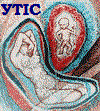
|
|
|
|
|
Math Interactive Learning Experience (MILE) Program for Children with Developmental Delays.
Training session with international participation
Psychologist of Medical Genetic Center,
Rivne Regional Clinical Diagnostic Center
The problem of addressing cognitive development and learning skills of children with Fetal Alcohol Spectrum Disorders (FASD) is not new today, but nevertheless, remains important. The causes of the problem most often are lack of information about neuropsychological characteristics of these children and absence of adequate educational programs designed to meet their needs. And this forms an opinion that they are unable to learn.
The research shows that children with FASD have learning abilities close to mild mental retardation (IQ 65-75). However, a scope of behavioral problems common for these disorders leads to difficulties and sometimes even failure to educate alcohol affected children. This is especially true of mastering elementary and basic math skills.
To familiarize the educators with modern approaches to teaching children with FASD and other developmental disorders, a training session with international participation titled "Fetal Alcohol Spectrum Disorders. Math Interactive Learning Experience for Children with Developmental Delays" was held on October 16, 2012 at the V.Polishchuk Rivne Regional Medical Diagnostic Center (further Rivne Diagnostic Center).
The co-organizers of the training were Rivne Diagnostic Center, "OMNI-Net for Children" International Charitable Fund, and Rivne Regional Institute of Postgraduate Pedagogical Education.
The training session was conducted by Dr. Claire Coles, Director of the Fetal Alcohol Syndrome and Drug Exposure Center, Professor of the Departments of Psychiatry and Behavioral Sciences and Pediatrics, Emory University School of Medicine, and Dr. Julie Kable, Assistant Director of the Fetal Alcohol Syndrome and Drug Exposure Center, Assistant Professor of the Pediatrics Department, Emory University School of Medicine (Atlanta, GA, USA). The training session was attended by specialists from Rivne, Khmelnytsky and Ivano-Frankivsk regions. The participants were Liudmyla Savchuk, Ph.D., Head of the Special Education Department at the Rivne Regional Institute of Postgraduate Pedagogical Education and staff members from her department, as well as special education teachers, elementary school teachers, psychologists, preschool teachers, speech therapists, recreational therapists.

During the training
The training started with an insight into diagnostic criteria of FASD and neuropsychological characteristics of children prenatally affected by alcohol.
The emphasis was on the behavioral regulation techniques and learning problems, namely, difficulties in mastering math skills.
The session included the presentation of the Math Interactive Learning Experience (MILE) Program for children with developmental delays aged 3 to 9. Drs. Claire Coles and Julie Kable are the authors of the program. The participants of the training could watch video clips of using the program to work with a child.

Dr. C. Coles speaking
The audience was especially interested in novel methods of structuring sessions with a child the MILE Program uses (unique perspective planning, Focus and Plan - Act - Reflect strategy etc.), peculiarities of using time-outs during sessions, simple hand-out materials available at every home, asking the "right" questions, and performing assessment of the child to adjust the teaching sessions to individual's needs.
At the end of the training the participants could receive qualified answers to the questions they had.
All the participants received electronic versions of the MILE Program curriculum and administration manual.







